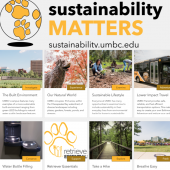
Abstract: Does the use of an interactive GIS web map significantly influence the level of sustainability stakeholder engagement at institutions of higher education? With over 1,000 institutions of higher education across the globe, the AASHE STARS report is one of the main tools available to sustainability professionals. For many institutions, the STARS report serves as a metric of sustainability progress and a source of new ideas and methods, while GIS provides a platform to display information within a context of systems, places, or times. Interactive web GIS allows for digital storytelling and can allow the user to explore specific information pertinent to their interests. This research explores potential links between the use of web GIS platforms and levels of campus engagement as measured by STARS.
Continue Reading
Abstract: While passionate, project-based, and place-based education may sound like a stream of buzz-phrases or fads in education at face-value, this article uncovers their impact on student engagement and academic proficiency. While they are not textbook, traditional, pedagogical approaches, they are esteemed in the field of Education as undeniably effective and worth teachers’ consideration. This article discusses the impactful aspects of a.) passionate teaching, b.) project-based learning (PBL), and c.) place-based education (PBE). A former fifth-grade teacher’s experience in creating and implementing a curriculum titled, “Farm-to-Table,” contextualizes the power of passionate teaching, PBL, and PBE when used simultaneously. The article concludes with special considerations for other teachers that warrant attention before they start planning their own passionate, PBL, and PBE curriculum.
Continue Reading
Formal classroom learning experiences that support sustainable behaviors outside the classroom necessarily must bridge students’ home and school lives, as knowledge and practice learned in the classroom is implemented outside of school. To this end, we study the impact of the Green Ninja Energy Tracker curriculum, which uses students’ home energy data in the classroom to promote engagement in climate change and conservation behaviors. Data is drawn from class observations, a focus group, and pre- and post- surveys of a pilot implementation of this curriculum in a diverse 12th-grade Earth Science classroom at an alternative school. We investigate what factors contributed to student engagement in learning about and participating in energy conservation behaviors. We found that students were engaged by the immediacy of tracking their energy use in near-real time, and were motivated by the economic benefits experienced as a direct result of changing their behaviors. In addition, students reported discussing and problem-solving energy use with their families, and surfaced considerations that informed which energy behaviors were implemented and why. Students also reported high levels of personal agency in taking action on climate change, but were pessimistic about the likelihood of society as a whole taking action. We suggest that this pilot demonstrates the potential power of connecting the varied places of students’ experience by bridging home and school lives through energy tracker software as a catalyst for developing scientific expertise and engagement, and supporting energy conservation behaviors.
Continue Reading